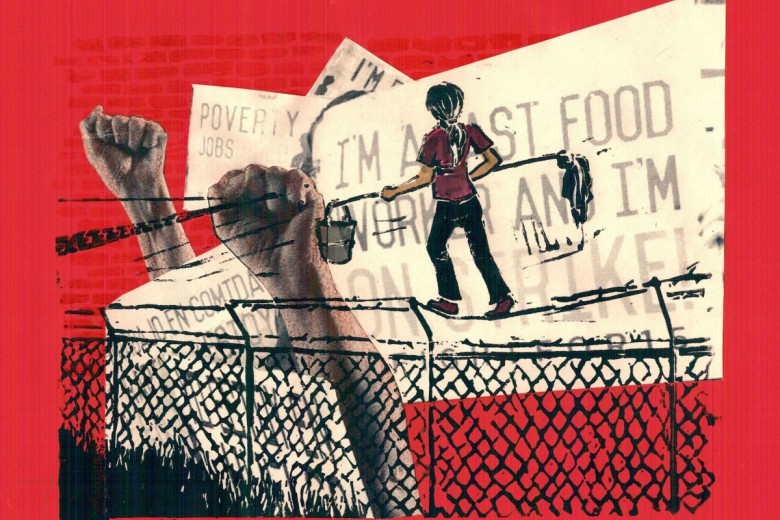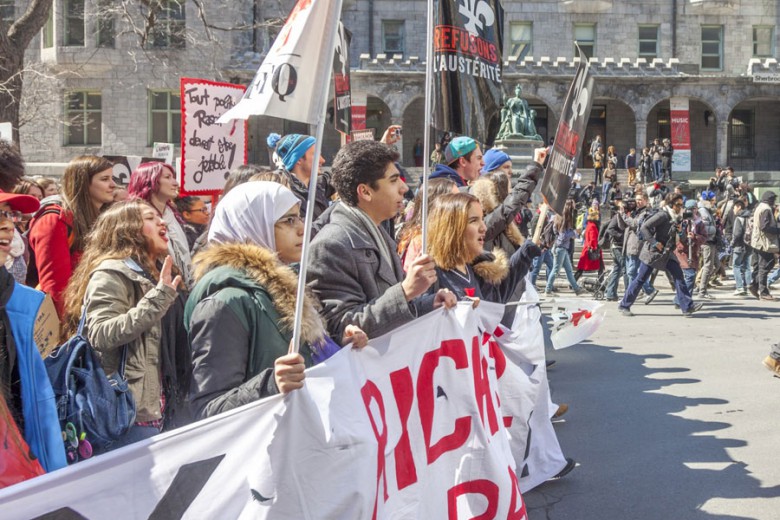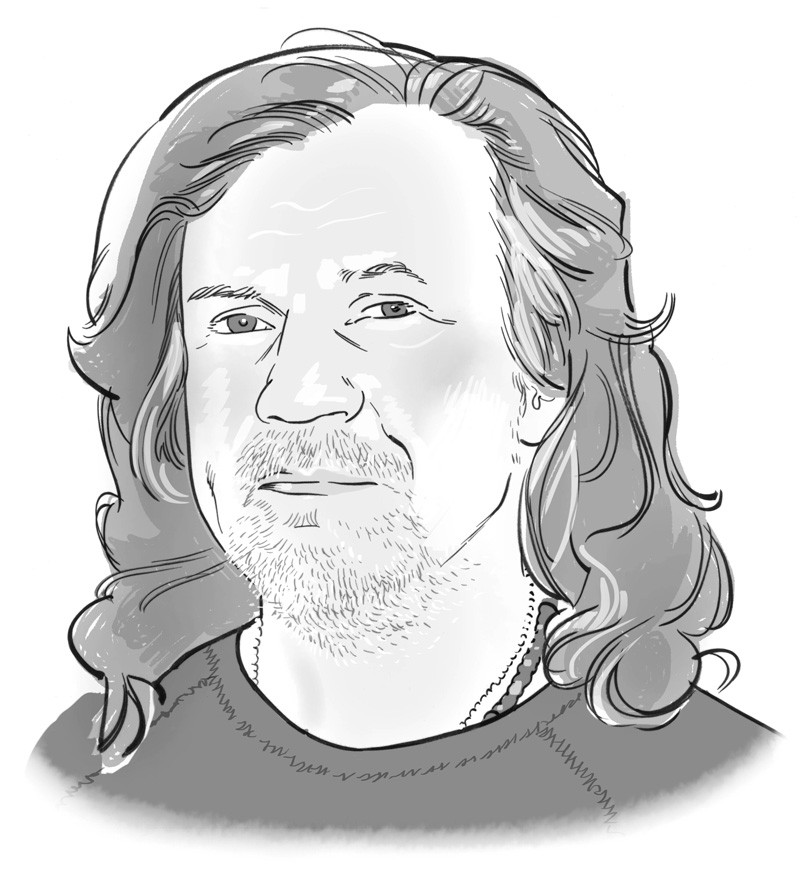
Dave Bleakney is a member of the Canadian Union of Postal Workers and the national union representative for education (Anglophone). On matters of anti-capitalism, the dude abides.
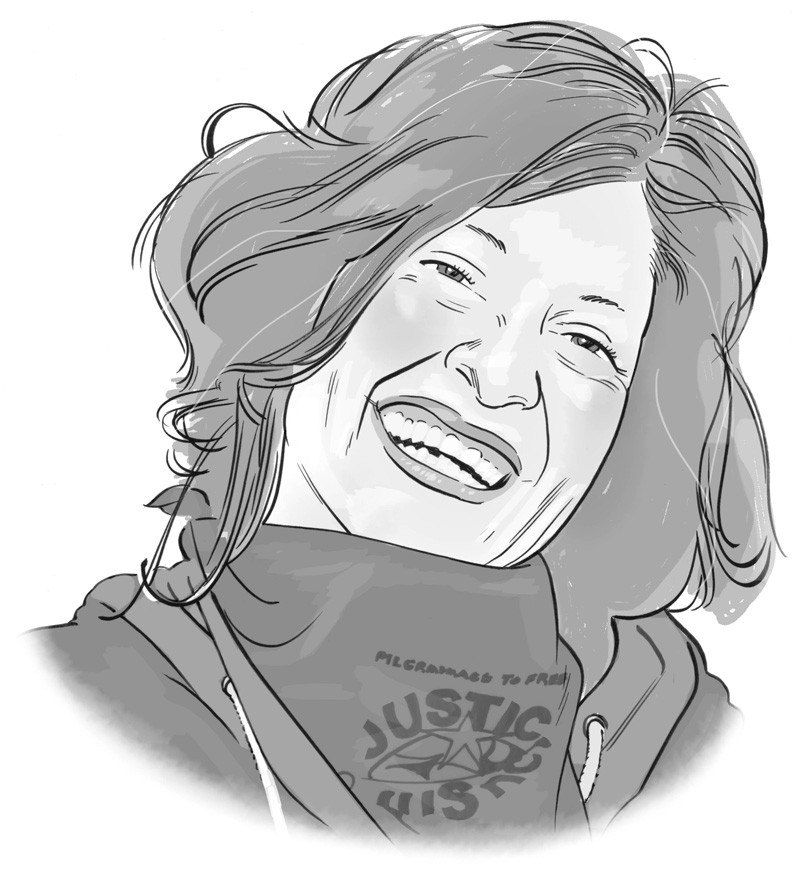
Adriana Paz Ramirez is a Bolivian journalist, community organizer, and popular educator. She is a founding member of Justicia for Migrant Workers B.C., a grassroots organization advocating for the rights of migrant farm workers in Canada.
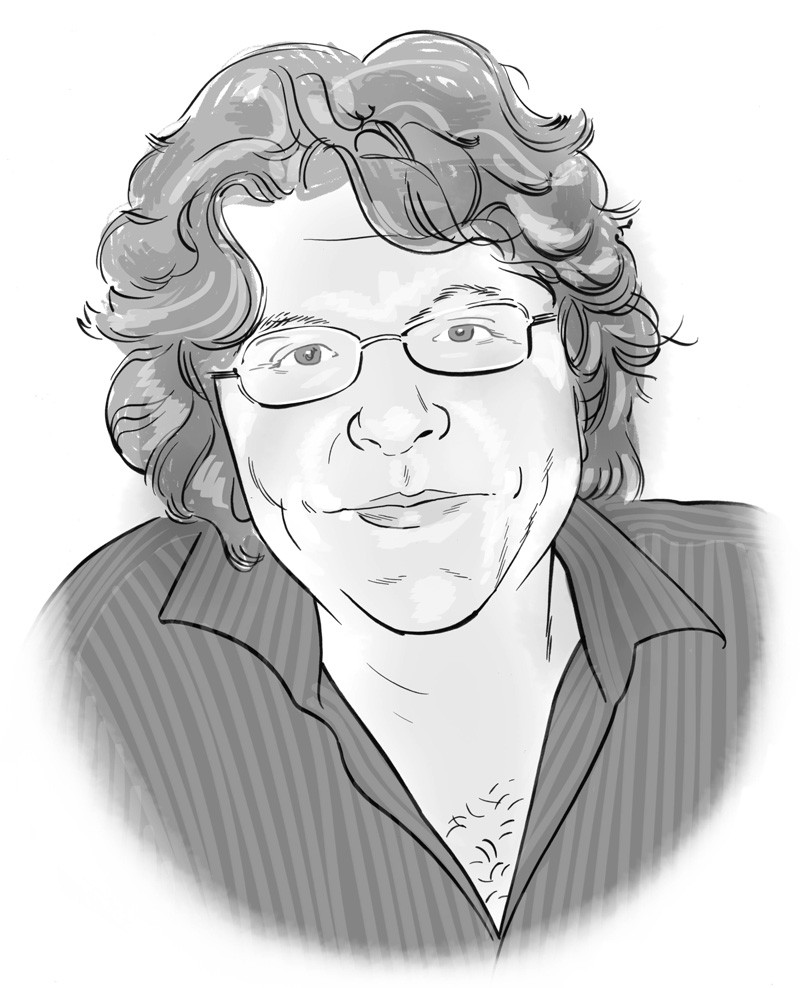
René Charest is a Montreal-based community organizer, a long-time union activist in la Confédération des syndicats nationaux (CSN), and a political activist in Québec solidaire. He writes in Presse Toi à Gauche and Les Nouveaux Cahiers du Socialisme.

Deena Ladd is the coordinator of the Toronto Workers’ Action Centre. The WAC works with predominantly low-waged immigrant workers and workers of colour in precarious jobs who face discrimination, violations of rights, and lack benefits in the workplace.
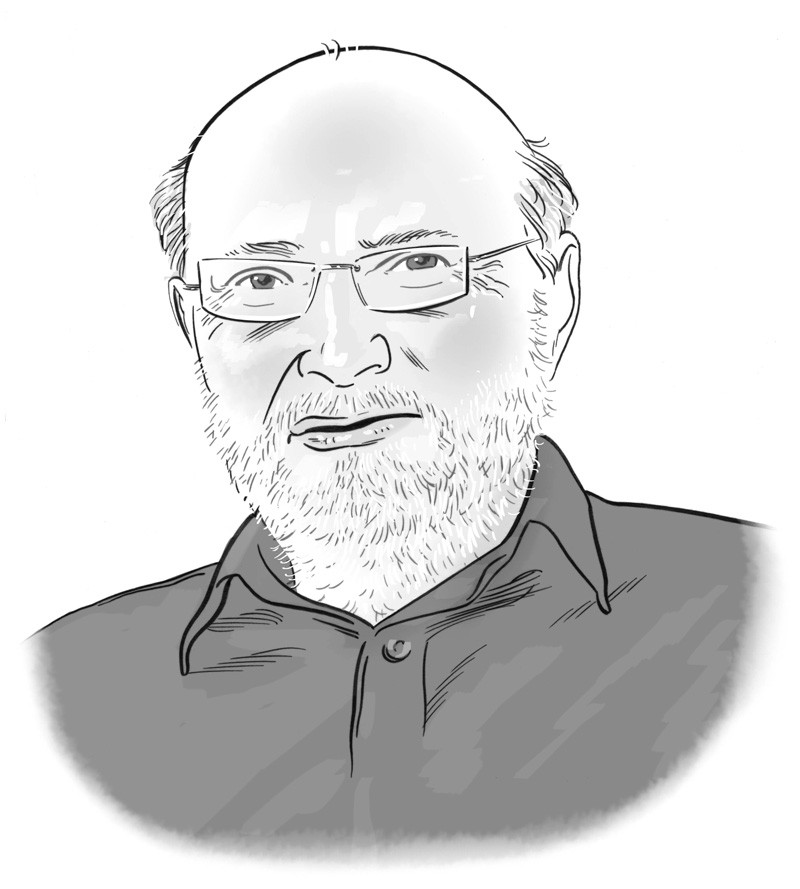
Sam Gindin retired from the Canadian Auto Workers union in 2000 after 27 years on staff, the last 16 as assistant to the president. He held the Visiting Packer Chair in Social Justice at York University from 2001 to 2011 and is the co-author of The Making of Global Capitalism: The Political Economy of American Empire.
During the economic expansion that followed WWII, organized labour won significant gains in exchange for embracing capitalism. Long since the crises of the 1970s, and decades into organized labour’s decline, major labour organizations still talk as if a return to that postwar compromise is possible. What can be done – what is being done – to challenge this orientation?
Deena Ladd: Many people we work with don’t see union rhetoric affecting their lives. As temp and contract workers, or workers in the periphery of unionized workplaces, they see workers’ ability to fight back weakening. The restructuring of the labour market in the last 30 years has been incredibly gendered and racialized. And it’s meant a massive disconnection between unions and people who have lost work, lack credential recognition, have migrated, or have been marginalized into low-paying work.
The key question is whether the union movement can reconfigure and reimagine itself as a truly representative and action-oriented working-class movement. Across the U.S. we’ve seen a dynamic and growing movement of workers’ centres and national organizations of day labourers, taxi drivers, domestic workers, farm workers, restaurant workers, and migrant workers who are creating a movement that recognizes these sectors of work, on one hand, but that also challenges the systemic racism and sexism within the working class which dually divides and rules, thwarting class solidarity. Struggles by fast-food, retail, and custodial workers lay the groundwork for unions and community alliances to come together. We need to seed the ground here and get this happening.
Dave Bleakney: It doesn’t appear to register with labour officialdom that the postwar compromise is dead. Workers live that reality every day, and future generations will suffer for it. Little has been done to talk about this, let alone recognize it. Unions act out in a kind of programmed theatre that is defined by employers and governments.
Trade unions can, if they choose, become coherent grassroots organizations, but it requires articulation and redirection of priorities. Currently employers play the system and generate defensive unions that react to employer-generated processes. A redirection would build important strategic discussions at all levels of the organization. This requires thinking and behaving as a class with interests as opposed to having a “mutual benefit” relationship with bosses; recognizing it is not a case of “bad” or “incompetent” bosses but a system of relations; placing members front and centre, democratically, instead of managing them; stressing short- and long-term strategic planning; refusing victimization and the blaming of bosses for our own weakness; and taking seriously feminist, anti-racist, and anti-colonial analysis within our unions.
Our liberation is not tied up in appealing to the goodwill of politicians and bosses but within ourselves. Union leaders must learn to give up some power and accept different structures, to build from below rather than manage members within an unsustainable system.
René Charest: With the strikes of 2005 and 2012, the Quebec student movement has provided an example of how to fight effectively: clear demands responding to the needs of the base, direct democracy, a large mobilization that forges alliances with other sectors of the population, and a willingness to pursue its struggle as long as victory has not been achieved. Quebec trade unionists should keep these lessons in mind.
I think the Quebec trade union movement is aware of its own decline. The leadership won’t say so, but while working within these organizations one feels a frustration and a crisis in terms of strategy. However, the Québécois left is exploring strategic areas that can create a broader left-wing perspective. This includes social movements and the emerging electoral party Québec solidaire.
Yet the labour movement is not present in these debates. It seems more interested in aligning with powerful institutions than with left-wing social movements. Take the attitude of union leaders in the spring of 2012, when they tried to play the role of mediators between the student movement and the Quebec government to put an end to the “social crisis” of the Maple Spring. Now is not the time to win institutional respect but to develop a new model of society through shared struggles.
Adriana Paz Ramirez: A new understanding of how power works in the neoliberal era is critical for redefining the role that unions could play today. In Canada, the welfare state has a bit more legitimacy among civil society organizations than in the U.S. In my opinion, this legitimacy is an illusion, however, especially under the Harper regime. Ironically, as long as unions and civil society organizations believe that the remedy exists within the welfare state, there will be no real challenge to the broader system that is dismantling social welfare structures.
Re-evaluating labour’s composition is a critical starting point here. Who is the labour movement, and who does it represent in a time of forced migration and displacement, flexibilization, high unemployment, and declining union membership?
Regarding strategy, if we are clear that solutions to our problems arise from the ground and not from up above, our approach will look different. Instead of seeking a false compromise, unions and other organizations will challenge the system and generate alternatives that give people a reason to fight back. Here I think of an old feminist line: “We don’t want a piece of the cake; we want to change the recipe.” Unions of the 21st century should follow this example if they want to remain relevant.
Sam Gindin: It’s crucial to begin by sorting out how we understand the end of the Keynesian welfare state. If we see it in terms of evil new policies, then we’ll focus on electoral policies. If we link it to union bureaucratization, we’ll look to democratizing unions and reviving their militancy. But if we see the 1950s and 1960s as themselves laying the ground for what was to later come, then it pushes us toward deeper and more radical solutions.
Neoliberalism’s roots can in fact be traced to the ’50s and ’60s when freer trade, multinational corporations, and the role of finance all first took off while the left within labour was marginalized. Workers were nevertheless still economically militant, and this created a problem for capital. Neoliberalism was the aggressive counter-response on the part of capitalist states and elites. Labour’s defeat stemmed from its inability to shift its struggles to a higher political plane that raised democratic control over workplaces, investment, banking, and prices. As a result, past gains were eroded, expectations lowered, and the vision of social transformation faded.
Four contemporary lessons seem significant. First, public-sector unions will be isolated unless they become de facto leaders in the fight for social services for everyone. This means going beyond progressive spin. It means rethinking everything about how unions are structured and function. Second, private sector unions must address what is now their members’ primary concern – their jobs – in a way that doesn’t look to naive alliances with business or simple stimulus. This means challenging the unilateral control of capital over investment and jobs. Third, as long as the financial system can discipline capital, workers, and governments, workers cannot achieve any of their goals. Democratizing finance is a precondition for any serious strategic gains. And fourth, real breakthroughs in expanding unionism aren’t a matter of better technical solutions but of moving from seeing organizing as increasing membership and dues to identifying it as building the working class.
Do you see emerging and more militant forms of labour struggle occurring inside existing unions, as rank-and-file revolts, or will they emerge in new and less conventional formations?
Dave Bleakney: These are not mutually exclusive. It’s a bit of both in an ongoing tension. But without a new approach, we will remain on the defensive. Too often competition for local control supersedes co-operative struggle, except for the occasional strike.
There is a lack of effective opposition militants within the movement today, and many unionized workers have a privileged position when compared to non-union workers. Rather than fight for everyone, many unions continue to fight losing defensive battles, relying on public relations strategies.
Let’s recall the collapse of the coalition that organized the general strikes driven from below against former Ontario premier Mike Harris. Leadership didn’t know what to do with this rebel power and squandered a great opportunity. The analysis of the left, meanwhile, was that this was a defeat rather than a template for future action. Labour is so defined by bosses and media it doesn’t know it is winning when it is.
To be sure, there is militant work taking place both inside and outside the trade unions. Some of the more inspiring examples are Idle No More, the Quebec student movement, and anti-pipeline organizing. In my union, the Canadian Union of Postal Workers, there have been pockets of militant actions, even work stoppages, but this is not celebrated or publicized officially.
Whenever and wherever workers take risks, they need to be recognized and celebrated. When people seek to learn humbly from other movements, successes follow.
Adriana Paz Ramirez: At risk of sounding pessimistic, I don’t see more militant action emerging inside the existing mainstream labour movement. For one, because it still doesn’t adequately represent working-class communities of colour who are at the lower end and at the margins of the so-called Canadian working class. There needs to be some innovation, revival, and change in the role and composition of both leadership and membership.
While many unions have people of colour in rank-and-file positions, and some have made real efforts to reach out to (im)migrant workers, many of these workers don’t see themselves or their struggles represented in the demands their union champions.
Meanwhile, the majority of workers of colour are not in unions, hold multiple precarious jobs, and are often underemployed, subcontracted, or on temporary work permits that restrict their basic rights. Their concerns and struggles often differ from the typical concerns of white unionized workers. Many migrant workers are concerned with issues like family separation, immigration and legal status, and exclusion from basic social programs, benefits, and protections.
The labour movement could refresh their strategic and tactical repertoires if they drew on the traditions of struggle and resistance that migrant workers bring from their own countries. These workers are an untapped source of power and energy that could be infused and integrated into the current labour movement.
René Charest: We can begin to see changes in the current forms of struggle in the Quebec labour movement in some key events. These events reveal practices which created a democratic space that allowed the struggle to proceed in a way that is direct and brings people together. These are local and sectoral practices and definitely in the minority, but I think they can give rise to some continuity.
In 2011, for example, the Jeanne-Mance Health and Social Services Workers’ Union led an important struggle to preserve health and social services in downtown Montreal. This fight lasted almost a year. This struggle had two important elements: first, the contribution of younger workers; and second, the relationships built between the union and community groups, women’s groups, student associations, nearby unions, and several progressive doctors.
During this campaign, popular assemblies were held, bringing together more than 200 people from different milieus to denounce the budget cuts. Actions multiplied within the community and attracted media attention. One of the factors that explains this mobilization is the presence, from the beginning of the struggle, of young workers from the Health and Social Services Centre. The majority of these young workers had participated in the 2005 student strike against the Charest government, and they therefore applied the methods of democratic struggle that they had previously tested out.
Deena Ladd: Adriana brings up key points in terms of a reframing of what resistance is and realizing the differences in what is at stake in a struggle. For migrant workers, challenging their workplace conditions can mean deportation within a couple of days. So when you have farm workers or restaurant workers speaking out, participating in marches, or going public about their exploitation, we need to understand the differential impact of exploitation from an anti-racist perspective.
For the organizing we have been doing, it’s meant working with people in temp agencies and subcontracting jobs, and new immigrants finding low-wage work as cleaners, for example. Taking on such employers is hard when English is your second language, or you’ve only been in the country for a year, or you’ve been in a revolving door of depressing temp jobs. But people are doing it. And not only that, they are taking on their own employer and then joining in fights against wage theft and for a better minimum wage. People are doing this without union representation and protection because they are galvanized.
Unions need to realize that bargaining in the context of austerity and the recent recession is very different. Community movements and strong internal organizing are critical. For example, there is an alliance leading a campaign to raise the minimum wage in Ontario to bring it to $14. It’s a great opportunity for unions to work with community groups to raise people above poverty. Unions should recognize that they have members who make $14 or less and that it won’t be possible to raise these wages acting only at bargaining time. Working in alliance with non-union workers opens a space for building relationships, and it fosters a political understanding of what it means to create a left-wing movement.
Sam Gindin: The ineffectiveness of unions through recent decades makes future rebellions of some kind almost inevitable. But the question is whether such surges of opposition will be sporadic and contained or lead to union revival. I’m wary of making predictions – when change comes, it often surprises us – but I’m skeptical about the rank-and-file rebellions being sustained on their own. Rank-and-file workers are too fragmented, too overwhelmed with immediate concerns, and too distant from their own history to exhibit the degree of strategic self-confidence essential to seriously contemplating – never mind carrying out – a persistent challenge to their leadership.
It’s much the same for the new forms of labour struggles. It’s not just that such struggles have generally depended on unions or NGOs for temporary resources. It’s also that their dependence on unions who are themselves limited in their vision and strategy is itself limiting. Moreover, while the tactics involved have been innovative, we need to note the modest goal of these movements: they generally want only what unions have already achieved. As important as this might be, it is a far cry from addressing the larger context of capitalist globalization. And without that, it’s difficult to see what renewal might mean.
It’s possible these new movements and their inventive tactics will create a momentum and new questioning that goes beyond their initial goals. But even then, the question remains how to keep such a dynamic going, expand its range, and give it independent organizational forms that don’t get reintegrated into the logic of capitalism.
In both cases – unions and new worker-based movements – the issue is not whether to give up on workers taking their organizations in new directions but to emphasize that this is inseparable from the existence of a broader left culture and organizational presence that must have its feet planted both inside and outside these unions and movements. The dilemma of overcoming the working-class failures of the past decades takes us back to the broader failures of the socialist left.
The decline of organized labour has occurred in concert with the decline of the political left. Yet, for reasons of its own, capitalism is more delegitimized today than it has been in many decades. What role can today’s left play in re-constituting an aggressive labour movement?
René Charest: In Quebec, there is an increase in activity on the left with the development, for example, of the political party Québec solidaire. This organization was created seven years ago and now has more than 10,000 members. Two of its leaders, Françoise David and Amir Khadir, are Members of the National Assembly. What’s more, the printemps érable (maple spring) revealed the emergence of a radical young generation full of hope. There is good reason to believe that there is a future for the left in Quebec. However, the Quebec labour movement, in general, kept its distance from the construction of a left-wing party in Quebec and missed an important opportunity with the student movement last year.
Sociologist François Houtard has said that social movements have two options when they are violently attacked by neoliberal power: either they carry out an open struggle against it and risk the dismantling of the initial organizations that compose the movement, or, on the contrary, they cling to the reproduction of their existing organizations. We can say that the Quebec labour movement has trapped itself within a logic of the reproduction of its apparatuses. It seeks to maintain itself as an institutional actor, and while it tries to attenuate the negative consequences of neoliberalism, it isn’t an avowed adversary of contemporary forms of capitalism.
I’ve said that the labour movement suffered from social blindness. It hasn’t worked towards the emergence of a broad political organization to defend the rights of workers in Quebec. By contrast, Québec solidaire has integrated very progressive labour policies into its program. During the convention in December 2011, we decided to defend a policy of full employment, the recognition of unpaid work, the reduction of work hours, the protection of existing jobs, the reinforcement of union rights, the struggle against discrimination on the job market, and the increase of the minimum wage.
If the labour movement doesn’t want to follow the path of left-wing politics, is the contrary possible? Can a political organization like Québec solidaire influence the workers whom its program seeks to engage? The answers will come from the struggles and the debates to come.
Dave Bleakney: All of us have been shaped by this postmodern, neoliberal moment: we see endless, fragmented snapshots of interests that sometimes link up and often don’t. Certainly the time is right for a revitalized left, carrying some of the elements of the old but also embracing a “21st century” socialism with diversity from below and fewer politburos above. This does not mean that structure and organization cease, but rather that the way they relate to the base must change.
Youth can see how thoroughly out of touch the labour movement is with its Labour Day bagpipe players and unappealing t-shirts. Processes like the Port Elgin Assembly, where a diverse set of interests are represented, provide hope that some form of the left will coalesce in a powerful way. Being ready to think outside the box and finding those spaces beyond the typical programmed systems we operate in is crucial. The People’s Social Forum scheduled for Ottawa in August 2014 offers another opportunity to build action-based discussions and networks. It remains to be seen if the Forum will deliver this or repeat the outcome of other international forums resulting in highly educative bad-news panels, with poor outcomes in the area of cross-sectoral struggle, left solidarity, and support.
We must learn to do strategy and we must learn to go on the offensive again. This can be built into practice. We can operate understanding that each battle is a step and not the war but deserves critical reflection and evaluation. Action caucuses must communicate between labour conventions not only to prepare and influence debate in a progressively coherent way, but also to push their base in ongoing struggles in the moment. Within the struggles of the racialized and the most exploited in this society, like migrants and Temporary Foreign Workers, we find lessons and connections. This can be a growing, inclusive, and horizontal movement, not one of righteous charity. The same can be said regarding organized labour and the global south. The left exists everywhere; it is merely in fragments. It is resurrection time. Opportunity is high.
Adriana Paz Ramirez: The decline of organized labour is indeed intractably linked to the decline of the social left and its ability to challenge global capital and neoliberal globalization. The labour movement used to be one of the actors in the left playing a vital role in the struggle against capitalist expansion. While it’s true that capitalism and neoliberal economic measures have proven big failures in delivering on the promise that the market will solve social inequalities and bring prosperity to all, unfortunately the left, in Canada and globally, is equally delegitimized – and this includes organized labour. In fact, if we think about the left in the constrained framework of political parties and electoral politics, we can see how delegitimized it really is. But if we think outside established movements and organizations we can see a wide range of struggles (organized and unorganized) at the margins.
Paying close attention to unorganized grassroots struggles and to unconventional social actors would allow us to engage the everyday politics of workers who don’t see themselves represented in the labour movement. This means not tokenizing unrepresented workers but genuinely paying attention to their grievances, hopes, and dreams. Usually the approach from established institutions is to try to engage them (as in migrant, racialized, and marginalized workers) in what we believe is important instead of the other way around. We need to connect with el pueblo and go back to the essence of grassroots organizing in order to restore legitimacy to the labour movement.
Sam Gindin: Even though capitalism has lost some of its legitimacy, it is not in serious danger from below because of the fatalism expressed in the phrase, “there is no alternative.” Unless we can create structures that give people the confidence that acting through them can make a difference – winning small battles that are part of larger, longer-term battles – then the fatalistic sense of capitalism just being the way things are will win out.
The dilemma is that the left, whose responsibility is to allegedly lead in the creation of such structures, is hardly in shape to “save” anyone right now. It hasn’t proved capable of doing the outreach to “normal” people, developing their confidence in their collective potential, nor in resolving its many internal issues. Some progressives have in fact given up on transforming society and focus only on protest. Others believe that protest itself can lead to radical change and the state can be bypassed. And some – hardly a minority – have given up the centrality of the labour movement.
I’d argue that the most important thing a coherent left can do at this moment is the educational work of passing on an understanding of capitalism and class. But even this limited goal cannot be done in the abstract. Education only becomes relevant on a large scale when it is part of ongoing struggles, and it actually demands a very great deal of organizational capacities – developing the educators, doing the outreach, assessing how the education is going, adjusting the education, etc.
Given the continued pressures on working people, the vacuum in terms of adequate responses, and the fact that the actual options have become polarized, to achieve anything in today’s context would mean fairly radical policies (the radical is increasingly what is practical) – the openings are obvious. The left does have constructive ideas and you can see them in the various answers set out in earlier questions. The missing link is our organizational capacity to carry them out. The issue isn’t coming up with alternative policies but of an alternative politics.
This is Part 1 of our two-part national round table on the state of organized labour. Part 2 is HERE.


_780_520_90_s_c1.jpg)
_780_520_90_s_c1.jpg)
